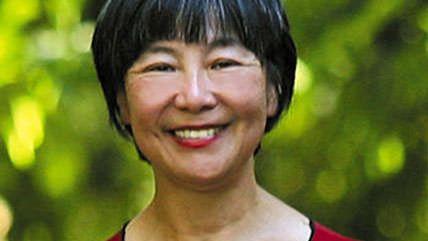Milk Debate Touches Raw Nerve in California
Special interest groups are stopping Mariko Yamada's raw milk bill.

SACRAMENTO—While driving through the Mojave Desert a few years ago, I stopped at a small restaurant and had a meal that included raw oysters. Driving home, I worried about the wisdom of that decision given that desolate desert regions aren't the best-known places for fresh oysters.
Nothing bad ensued, but it reminded me of a lesson modern consumers often forget: There's certain risk in anything we eat. Bad oysters kill a few Americans each year, and serious E. coli outbreaks have been tied to such healthy-seeming products as bean sprouts and lettuce. Our food is remarkably safe, but food-borne illnesses remain fairly common.
A little perspective is necessary as we analyze food-safety debates, such as one that took place earlier this month in the state Assembly. Mariko Yamada (D-Davis) introduced A.B. 2505, that would allow hobby farms to share or sell raw, unpasteurized milk from cows and goats, but it was halted after the commercial dairy industry and food-safety advocates claimed the bill would cause a public-health "disaster." The bill's supporters suspect that the opposition was more about crushing competition than about protecting the public's health, although there's little question that pasteurized milk poses fewer safety risks than the raw variety.
The debate's politics are fascinating, given that some Democrats who are more apt to favor government regulation backed the bill as a means to help the small, niche farming industry that is sprouting up. Meanwhile, some Republicans, who usually decry government meddling, blasted the bill.
"If you want to drink unpasteurized milk, buy a cow, milk the cow and drink the milk," said Assemblyman Brian Dahle, a Republican from a rural northern California district, according to a Sacramento Bee report. "We don't like to get into what people do at home–that's your business–but when you start selling it, that's our business."
Not many people can actually buy a cow. And many Californians would like to be free to buy a product they believe to be tastier than the processed milk sold in grocery stores. The health issue is up for debate, but it's ironic when Republicans believe the state government is the one that should decide. And rarely do they question California's dairy industry, which has been known to flex their muscle to boost prices and keep out competition from other states.
It's legal to drink raw milk in California and even for some larger commercial dairies to sell it, but the ongoing sale ban for home dairies promotes some "work-arounds." Some people who want to buy and sell raw milk, for instance, simply sign waivers saying that it is not for human consumption. The bill, supporters say, would improve food safety by prodding these home dairies to comply with higher standards.
The bill would have allowed people with three lactating cows or 15 lactating goats or sheep to sell small amounts of milk to their neighbors or to strangers who come to their property to buy it. It adds inspections, tests and regulations – but does not require hobby farms with fresh pastures to comply with the same costly rules as commercial dairies with many cows who live in confinement.
Opponents of the bill said the U.S. Food and Drug Administration calls raw milk risky, especially for very young children. The hearing included testimony from a woman whose child became seriously ill after drinking it. It also included statements from those who support the legality of raw-milk sales.
"To suggest that raw milk is 'inherently dangerous' implies that all milk, without exception is 'tainted' with pathogens and unfit for consumption," argued Professor Cynthia Daley, who heads the dairy program at Chico State University's agriculture department, in her testimony before the committee. "There is a growing body of evidence to suggest these farm kids, raised on raw milk, are actually healthier."
The main threat from raw milk is if the animals are unhealthy or live in dirty conditions. Daley argues that these hobby farmers spend so much time tending to their small number of cows and goats that the milk tends to be very safe. My daughter raises Nubian dairy goats on our small acreage, and is part of a community of small hobby farmers who are fanatical about their animals and their barns. She doesn't sell the milk or drink it, but I suspect the people who want to buy raw milk tend to be highly informed consumers who understand the potential risks and benefits.
In 2011 in Venice, California, agents raided a health-food store and confiscated its raw milk, which gained attention as a seemingly heavyhanded approach given the nature of the "criminal" activity. Isn't it better to just let individuals make their own choices about a food that can't be much riskier than fresh oysters from the Mojave Desert?


Show Comments (45)